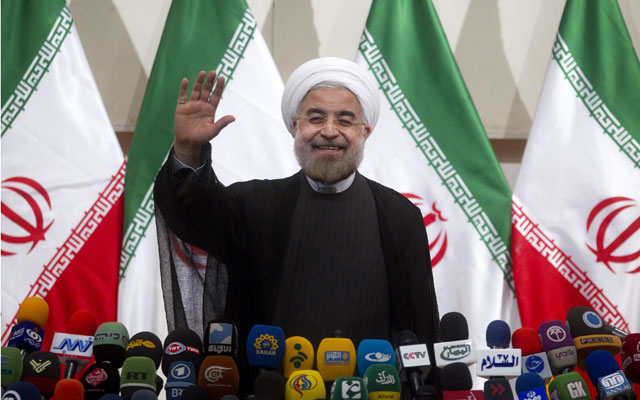With Iran: Distrust and Verify
Rebeccah Heinrichs /
Iranian lawmaker Hossein Naqvi Hosseini said on Wednesday that Iran doesn’t need to enrich uranium above 20 percent, attempting to convince the U.S. that Iran has no intention of using uranium for nuclear weapons. But the Obama Administration should not fall for empty promises or partial deals.
Hosseini is not a spokesman for the Iranian government, and even if he were, Iranian promises have been broken time and time again. Moreover, partial enrichment simply isn’t good enough. The Iranians have defied international sanctions, and ever since the Obama Administration extended Tehran its “open hand,” Iran has expanded its illicit nuclear program, increasing the number of operating centrifuges and constructing the Arak heavy water reactor for plutonium production.
Recall, the Obama Administration began negotiations with Iran with the false hope that newly elected president Hassan Rouhani was a reformer and a moderate. But Rouhani has been a part of the Iranian government’s covert nuclear program for years. His rhetoric may be more toned down than his predecessor, Mahmoud Amadinajad, but this just means he knows how to better use diplomacy for Iran’s purposes.
In 2004, Rouhani acknowledged that he exploited negotiations to buy time to continue Iran’s nuclear program: “While we were talking with the Europeans in Tehran, we were installing equipment in parts of the facility in Isfahan [site of Iran’s uranium conversion plant], but we still had a long way to go to complete the project.… By creating a calm environment, we were able to complete the work in Isfahan.”
As Heritage’s James Phillips has written, the U.S. government should take a “distrust and verify” approach with the Iranians, continuing to put pressure on the Iranian regime through sanctions and the credible threat of force until Iran’s enrichment and reprocessing facilities are completely and verifiably dismantled.
The U.S. has spent more than a decade trying to slow down Iran’s nuclear program—all while Tehran has continued its improvement and expansion. Because the final solution, if there is one, will also demonstrate to other states what the U.S. considers acceptable, safe, and responsible behavior regarding nuclear technology, the U.S must not reward Iran for years of volatile and illicit activity.
The Obama Administration should resist the temptation to settle for a short-term deal that merely buys Iran more time to either expand its program through other means or merely reopen it after a short pause. A long-term, permanent solution is required.

